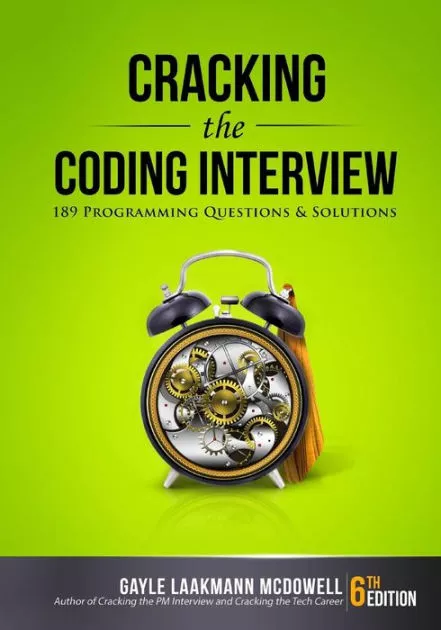Source: Chat-Gpt
Cracking the Coding Interview by Gayle Laakmann McDowell is a popular resource for software engineers preparing for technical interviews. This book provides in-depth explanations, coding problems, and solutions, along with valuable insights into the interview process at major tech companies. It is designed to help candidates understand the technical skills, problem-solving techniques, and strategies necessary to succeed in coding interviews.
Key Sections and Concepts:
- The Interview Process:
- McDowell begins by demystifying the tech interview process, explaining what companies like Google, Facebook, and Amazon look for in candidates.
- Covers different types of interviews (phone screens, on-site interviews, behavioral interviews, and coding interviews) and what to expect from each.
- Offers advice on how to handle non-technical questions, communicate effectively, and demonstrate problem-solving skills during interviews.
- Technical Foundations and Key Programming Concepts:
- Before diving into the coding problems, the book provides a refresher on essential computer science concepts that are frequently tested in interviews.
- Topics include data structures (arrays, linked lists, stacks, queues, trees, graphs, hash tables), algorithms (sorting, searching, recursion), and time/space complexity.
- McDowell explains Big-O notation and how to analyze the efficiency of algorithms, which is a key skill in optimizing code and performing well in technical interviews.
- Problem-Solving Techniques:
- McDowell presents problem-solving strategies to help candidates approach and break down complex coding problems.
- Techniques include using examples, simplifying problems, breaking problems into smaller components, and practicing “brute-force” solutions before optimizing them.
- Encourages practicing common coding patterns, understanding problem requirements, and testing solutions with different inputs.
- 189 Programming Questions and Solutions:
- The core of the book consists of 189 coding questions covering various topics and difficulty levels, complete with detailed solutions and explanations.
- Questions are categorized by topics such as:
- Arrays and Strings: Basics like string manipulation, array rotations, and character counts.
- Linked Lists: Merging, reversing, finding cycles, and removing duplicates.
- Stacks and Queues: Implementing stacks/queues, using them in algorithms, and solving problems like balanced parentheses.
- Trees and Graphs: Traversals, finding nodes, balancing trees, and understanding graph-based problems.
- Bit Manipulation: Working with binary representation, bit shifting, and XOR operations.
- Math and Logic Puzzles: Number theory, combinatorial problems, and logic-based challenges.
- Sorting and Searching: Implementing algorithms like quicksort, mergesort, binary search, and solving related problems.
- Dynamic Programming and Recursion: Using memoization, solving classic problems like Fibonacci, and exploring complex recursive solutions.
- Each problem includes hints, thorough explanations of the solution, and alternative solutions to encourage deeper understanding.
- Behavioral Questions and Soft Skills:
- In addition to technical questions, the book provides guidance on handling behavioral questions, which are often overlooked in technical interview prep.
- It covers common behavioral interview questions, such as discussing past projects, handling challenges, and explaining career goals.
- McDowell emphasizes the importance of demonstrating a collaborative attitude, adaptability, and passion for technology, which can impact an interviewer’s impression.
- Additional Interview Tips:
- The book shares tips on preparing a strong resume and provides sample resume templates to highlight key skills and achievements.
- Offers advice on handling unexpected interview scenarios, such as not knowing the answer to a question, and how to ask clarifying questions to better understand the problem.
- Emphasizes the importance of practicing mock interviews, either with a peer or online, to build confidence and get used to thinking out loud.
- Understanding the Interviewer's Perspective:
- McDowell offers insights into what interviewers look for during technical interviews and how they evaluate candidates based on problem-solving approaches, code quality, and communication skills.
- She explains that interviewers value clarity, logical thinking, and the ability to communicate and discuss the code as it is being written.
Conclusion:
Cracking the Coding Interview is a comprehensive resource for anyone preparing for software engineering interviews, particularly for roles at top tech companies. It provides an in-depth look at technical and behavioral interview strategies, as well as a wealth of coding problems that cover key data structures and algorithms. By focusing on problem-solving skills, technical foundations, and effective communication, this book equips candidates with the tools they need to tackle challenging interview questions with confidence.

